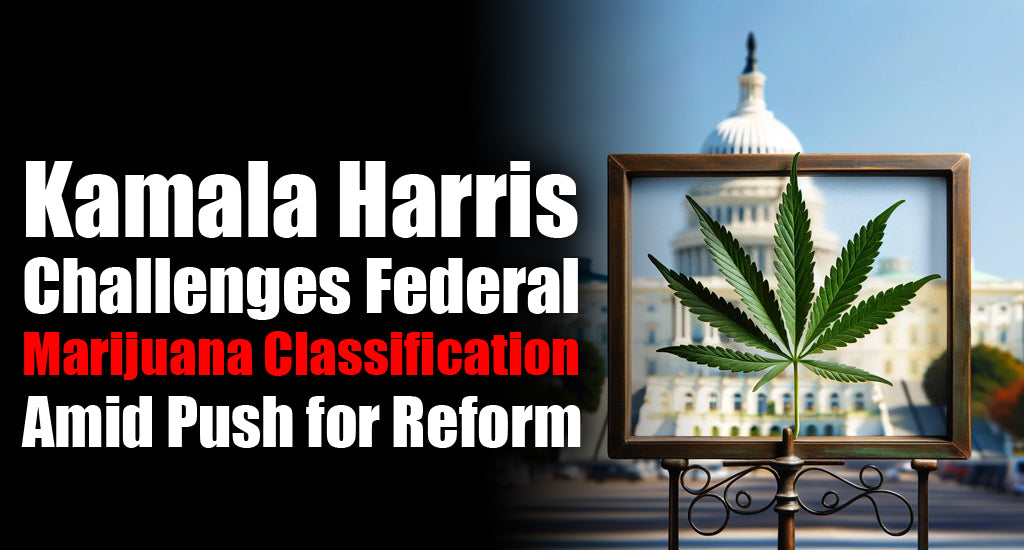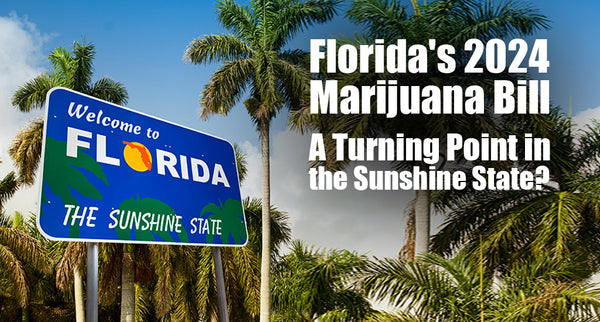
Kamala Harris Challenges Federal Marijuana Classification Amid Push for Reform
In recent years, the dialogue surrounding marijuana legislation in the United States has undergone a significant transformation, with Vice President Kamala Harris at the forefront of advocating for change. Harris's pointed criticism of the federal classification of marijuana, which deems it more dangerous than fentanyl and on par with heroin, marks a pivotal moment in the nation's approach to cannabis policy.
Key takeaway:
-
Harris Critiques Marijuana Classification: Vice President Kamala Harris has called the federal classification of marijuana, considered more dangerous than fentanyl, "absurd" and "unfair." This highlights the Biden administration's intent to reform outdated cannabis laws.
-
Evolving Stance on Cannabis: Kamala Harris's perspective on marijuana has significantly shifted from her time as a prosecutor enforcing strict laws to advocating for decriminalization and legalization as vice president, reflecting broader societal changes.
-
Potential for Legislative and Social Change: The administration's push for rescheduling marijuana, led by Harris's vocal support, signals a possible transformative shift in drug policy aimed at justice and equity, with far-reaching implications for criminal justice reform and social equity.
This stance not only challenges longstanding federal laws but also signals a broader call for reform within the Biden administration, aiming to align federal policies with modern societal and scientific understandings of marijuana.
The Political Landscape and Marijuana Reform
Amid the backdrop of the upcoming 2024 campaign, Harris's outspoken critique comes at a crucial time. The administration's proactive steps—beginning just before the 2022 midterms, with President Biden pardoning all prior federal offenses for simple marijuana possession—highlight a strategic approach to cannabis reform.
This move, coupled with efforts to reconsider marijuana's classification, underscores a commitment to justice and equality. Harris's background, evolving from a prosecutor known for enforcing marijuana criminalization to a vice president advocating for its decriminalization, offers a nuanced view of the administration's stance. As political dynamics shift, the administration's actions may well shape the discourse around the 2024 campaign, reflecting a broader societal move towards acceptance and legalization of cannabis.
From Prosecutor to Vice President: Harris's Marijuana Journey
Harris's journey from a tough-on-crime prosecutor to a progressive vice president illustrates a significant evolution in her stance on marijuana. Despite a history of prosecuting marijuana cases and opposing legalization initiatives as San Francisco's district attorney, Harris's views have dramatically shifted.
Now, she champions the decriminalization and federal legalization of cannabis, reflecting a broader trend of changing perceptions towards marijuana in American politics and law enforcement. This transformation mirrors the nation's growing acknowledgment of the injustices and inefficiencies inherent in the war on drugs, particularly the disproportionate impact on communities of color.
Toward a More Just Future: The Path Ahead for Marijuana Legislation
Vice President Kamala Harris's recent statements and actions represent not just a personal evolution but a signal of possible future directions for federal marijuana legislation. By calling the current classification of marijuana "absurd" and advocating for rescheduling, Harris and the Biden administration are laying the groundwork for potential shifts in national drug policy.
This move towards justice and equity in drug policy not only challenges existing paradigms but also opens the door for comprehensive reform. As the nation continues to grapple with these complex issues, the administration's stance on marijuana could have far-reaching implications for criminal justice reform, social equity, and the legal landscape of cannabis in the United States.
Leave a comment
Comments will be approved before showing up.



